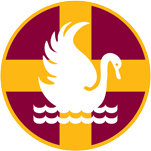EYFS Curriculum
EYFS Curriculum
EYFS Curriculum
When creating the curriculum our emphasis is on developing each child’s communication and language skills, building and extending vocabulary and early reading. All of which will enable children to access and explore all areas of the curriculum and develop a life-long love of reading.
Phonics in EYFS
The children begin the process of learning to read and write in Reception using Read Write Inc.
The children learn to:
- read accurately and fluently with good comprehension
- form each letter, spell correctly, and compose their ideas step-by-step.
Firstly, they begin the process of learning one way to read the 40+ sounds and blend them into words. Then they begin to learn to read the same sounds with alternative graphemes. They experience success from the very beginning. Reading books are closely matched to the children’s increasing knowledge of phonics and ‘tricky’ words. As children re-read the stories, their fluency increases. When the children are ready, they are encouraged to take home the phonics books they have been reading in school to practise and consolidate their reading and phonics skills. You will be given more information about this at the appropriate time.
During Read, Write Inc. lessons, the children are also taught to write letters and simple words early on and build on their success. They write every day, rehearsing out loud what they want to write, and composing sentence by sentence, until they are confident enough to write independently. They use their knowledge of the alphabetic code and the ‘tricky’ words they have learnt. They practise handwriting every day: sitting at a table comfortably, learning correct letter formation and joining letters speedily and legibly.
Read, Write Inc. is taught daily throughout EYFS. Children are grouped according to ability and taught by a trained adult. The children are assessed every half-term and groups are re-arranged to ensure they are always making progress relative to their ability. Any child falling behind is given intensive support to ensure they catch up as rapidly as possible.
You can help your child at home with reading by:
- reading daily to and with your child
- making story time a fun and relaxing activity
- re-reading familiar books in addition to introducing new stories
- talking to the children about the stories
- showing the children that you like to read too
- following any advice given to you by your child’s teacher
